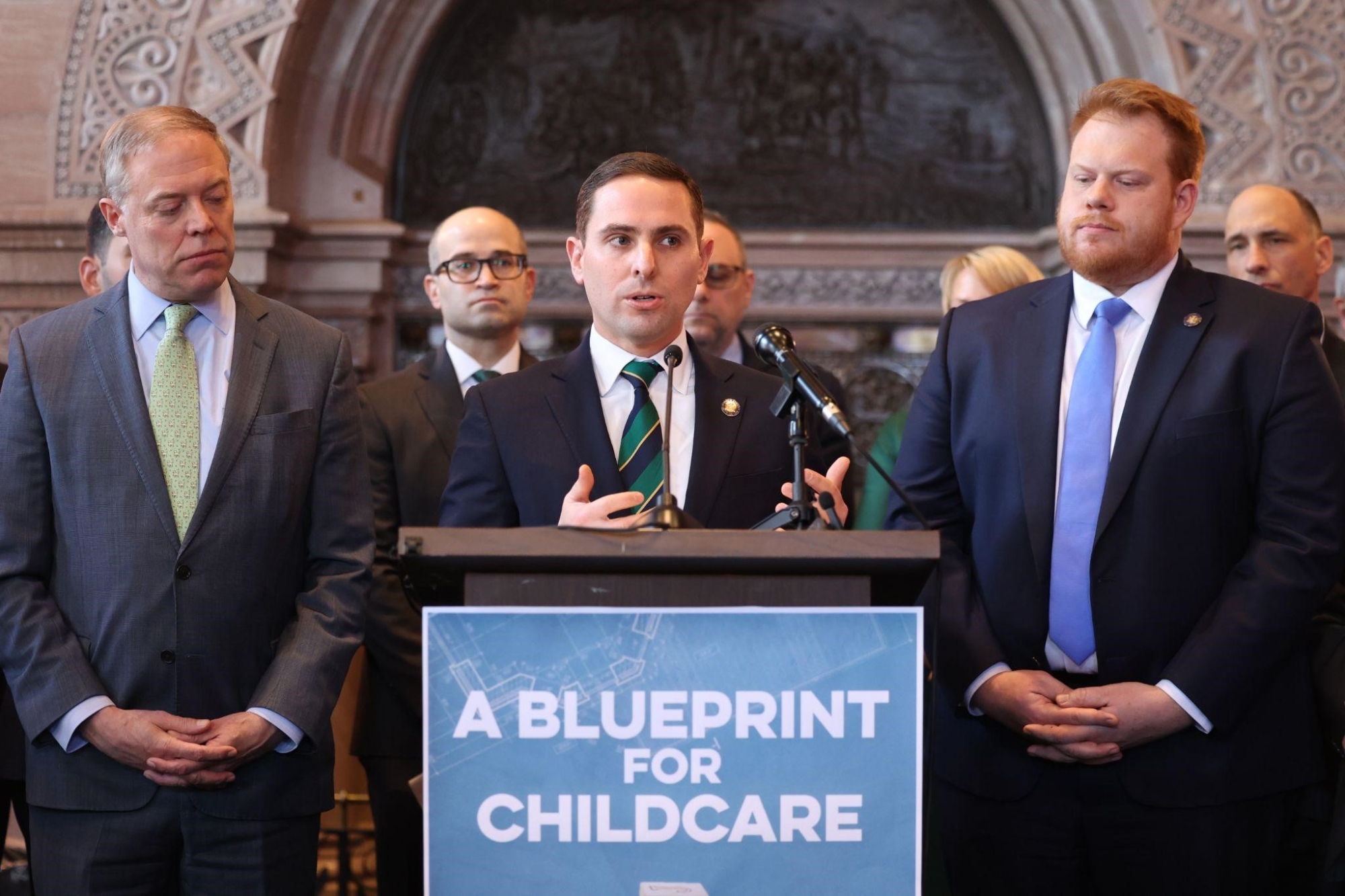Slater Pushes for Affordable and Accessible Child Care for New York Families
Amidst the ongoing affordability crisis affecting young families, particularly those grappling with child care expenses, Assemblyman Matt Slater (R,C-Yorktown) addressed a recent bill (A.8570) he introduced during a child care press conference alongside his Minority colleagues today.
Acknowledging the pivotal role of early childhood development in shaping communities, Slater’s proposals present a strategic approach to fostering the establishment of child care facilities. By offering a partial exemption from real property taxes, the bill aims to incentivize local municipalities to actively promote the creation and expansion of child care centers. This tax relief will enable these organizations to invest in and sustain high-quality child care programs, ensuring accessible and affordable child care options for families.
Additionally, Slater introduced providing daycares with a pool of qualified and licensed substitute staff members for when life happens and day care staff get sick, injured, schedule appointments, or otherwise cannot come to work (A.6071). Because a lot of times, daycares are either short staffed which decreases the quality of childcare available, or the daycare is left with no staff, forcing it to close for the day and leaving parents without child care.
“The pandemic proved child care is an essential service that keeps our economy moving. However, the cost of child care is equivalent to a second mortgage payment in many cases. A driving factor in the sky-high cost of child care is the property tax burden these businesses face. Other states are solving this problem by authorizing property tax exemptions to child care facilities that will instantly reduce the costs being passed onto our families. It’s time for New York state to allow the same and make child care more accessible and affordable for our families,” said Slater.
The Assembly Minority Conference is proposing a $1 billion investment in our childcare system to attack the ever-increasing child poverty rate and have proposed additional legislation such as, removing existing laws and regulations that hinder the establishment of new child care providers (A.8969), and introducing ways to help families with non-traditional work hours enroll their children in non-traditional child care hours (A.9126) making child care more accessible.

